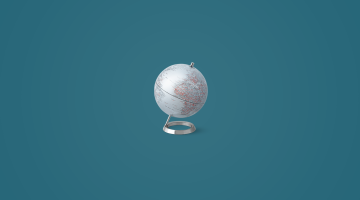Paid internships—what is an internship gratuity?
An internship is a great way to get a taste of what it’s like to have a career, but you’re not a fully-fledged member of the workforce yet. Generally as an intern, you’re not considered a company employee. This means you can’t earn income in the same manner as a standard employee. That being said, the law makes it compulsory for companies, state administrations, and any other organization (such as associations and local authorities) to pay you a gratuity for your time. As a kind of bonus, your internship gratuity isn’t subject to the same tax laws as a salary would be. Read on to learn exactly what makes it different.How long does an internship have to be for you to get paid?
Internships must be paid if they’re longer than 2 consecutive months, or starting from the 309th hour or 44th day of the internship if it’s not full-time. If the time comes out to be less than these figures, then the host organization is under no obligation to pay you an internship gratuity. Internships are generally unpaid if they’re less than 2 months (although the company may still choose to pay the intern a gratuity). This means that immersion courses, which last a maximum of one month, won’t necessarily offer compensation.What is the minimum pay for an internship?
The minimum pay for internships is subject to law, and there is a minimum internship “salary.” For 2021, it’s €3.90 per hour, or 15% of the hourly social security threshold (the scale used for determining welfare benefits). Your pay begins from the first hour worked, not after two months. The total amount you earn has to be agreed upon when you sign your internship contract. On average, this comes to €600 for a full-time internship of 7 hours per day and 22 days worked.Since the social security threshold is updated every year on January 1, the minimum pay for internships also changes. This means your pay could increase if the hourly threshold increases during the period of your internship.Time off (including maternity and paternity leave, etc.) is not subject to gratuity.Note that if your internship is with a public body, the organization is not entitled to pay you beyond the minimum threshold. In some private companies, you can receive more than the minimum amount if this is stipulated in your internship agreement.How do you get paid for your internship?
You should be paid at the end of each month, instead of at the end of your internship. There are two payment options for your internship gratuity:- The host organization pays you for the number of hours worked throughout the month. In this case, your internship pay may vary from month to month, depending on the number of days worked
- The host organization averages the total amount over the duration of your internship and pays you the same amount each month
How to negotiate your internship pay
As long as you’re not doing your internship in the public sector, you may be able to negotiate the pay you receive for your internship. Wondering how to address the subject of pay in your internship interview? If your employer asks for your salary expectations, simply tell them what you would like to have. Then, if you’re offered the internship, there a few different arguments you can use to negotiate your internship pay:- Geographical distance. If you have to make long trips or even move house to get to work each day, you can request an increase in your gratuity on these grounds.
- Your level of education. If you’re in your third year of studying or even further along, make sure you highlight the knowledge you’ve acquired in your training. This shows your employer that you bring more value to the team than someone with less education.
- Your experience. Previous internships, case studies, personal experience. Highlight any experience that proves you have the skills for the role so the employer understands that by taking you on, they’ll benefit just as much as you—if not more!
Negotiating your salary might seem intimidating, but it shows your employer that you know your worth. Plus, it’s great practice for negotiating a full-time work contract one day in the future. Just remember—be polite no matter what, and always keep it positive and professional. Is your internship gratuity subject to tax?
As long as it doesn’t exceed the annual minimum wage (€18,473 in 2020), your internship gratuity isn’t subject to tax. If you earn above that threshold, you’ll be taxed on the difference. It’s also exempt from social security contributions, as long as it doesn’t exceed the legal minimum. This means there’s no difference between the gross and net “salary” for your internship. If you’re paid above the minimum, only the difference is subject to social security contributions.What are other perks that come with an internship?
In addition to paying you financial gratuity when your internship lasts two months or longer, the host organization provide other benefits for you:- Financing 50% of your transport costs
- Providing you with restaurant vouchers like other employees, if they get them
- Access to the company restaurant
- Access to the works council offerings
These perks aren’t just granted at the whim of the company—they’re a legal obligation. You’re fully entitled to assert these rights if you haven’t been receiving them.Manage your finances the smart way with N26
Being a student or an intern can be tough financially, so why not open a bank account that makes it a little easier? N26 Smart sets you up with all the features you need to succeed. Open up to 10 Spaces sub-accounts that sit right alongside your main account, so you can start building up your savings. Turn on Round-Ups to automatically round up every card purchase to the nearest euro, and stash the difference away in your chosen space. Plus, get instant push notifications on every transaction, so you always know exactly where your money’s going. Your life changes pretty fast—why not choose a bank that moves with you?





